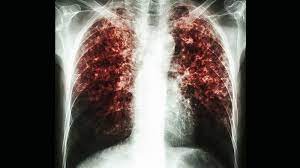WHO/Europe is helping Member States leverage high-level political will to position the fight against tuberculosis (TB) as a whole-of-government and whole-of-society priority. It is hoped that better coordination linking the highest levels of government with the grassroots of society will galvanize the implementation of political commitments to end TB.
The vicious circle of social determinants, one of the major drivers of the TB epidemic, was highlighted by WHO/Europe at a meeting convened by the Global TB Caucus on 18 March 2021. Participants included members of parliament from eastern European and central Asian countries as well as the TB Europe Coalition and the Stop TB Partnership.
Factors such as poverty, malnutrition and poor living conditions increase the risk of becoming infected with TB and of developing serious disease. These factors also have a negative impact on treatment outcomes. The way to ensure a rights-based, equitable, gender-sensitive and people-centred TB response is to invest in multisectoral collaboration and accountability.
Accountability across sectors
The Multisectoral Accountability Framework to Accelerate Progress to End TB by 2030 (MAF-TB) was presented at the meeting as a practical tool to strengthen a multisectoral response and support accountability for the implementation of political commitments to end the TB epidemic by 2030, in line with national and global targets.
WHO developed the MAF-TB upon request from Member States following the first WHO Global Ministerial Conference on Ending TB in the Sustainable Development Era: a Multisectoral Response in November 2017 and the United Nations General Assembly High-level Meeting on Ending TB in September 2018.
WHO/Europe shared updates on the launch of MAF-TB baseline assessments in pilot countries of eastern Europe and central Asia (Belarus, Kazakhstan, the Republic of Moldova, Tajikistan and Ukraine). The Organization discussed collaborating further with members of parliament, civil society and affected communities as an integral part of its technical work with Member States to operationalize the MAF-TB and ensure a sustainable, multisectoral TB response.












